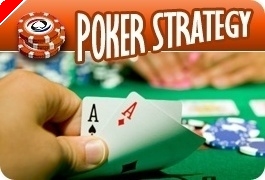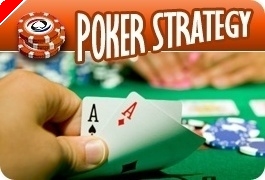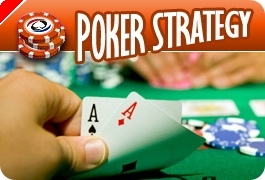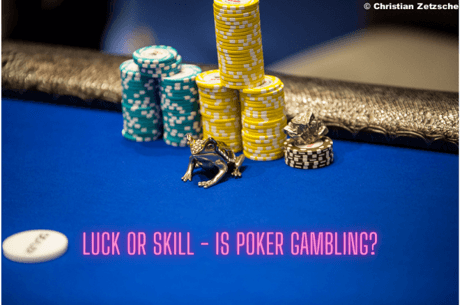H.O.R.S.E. Poker Strategy: In the Mix -- The Importance of Fourth Street in Razz
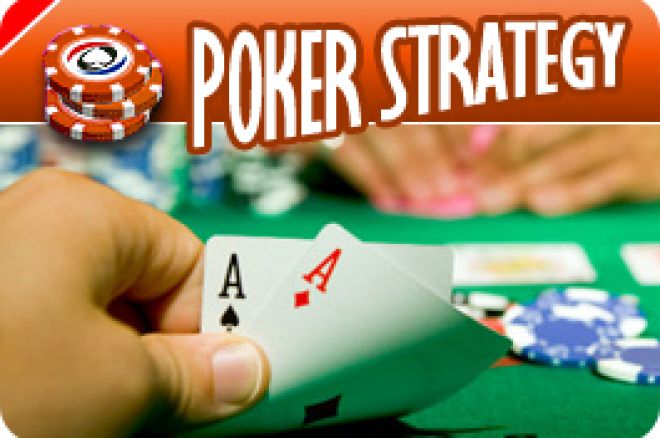
Razz is one of the most poorly understood of all of the games that typically find their way into a mixed-game rotation. As opposed to other lowball games like deuce-to-seven triple draw and badugi, razz (like most stud variants) is not an action game. That's because razz is a heavily math-oriented game and a game where an early brick should frequently send a player's hand into the muck. Most players can't stand the agony that catching brick after brick can cause and therefore choose to avoid playing the game as much as possible.
A few weeks ago I discussed some basic concepts regarding third-street decisions in razz, specifically the importance of starting with three low cards and keeping track of the cards that have already been exposed on the boards of one's opponents. The hand doesn't end at third street, of course. Fourth street is probably the most important street in razz. A decision to proceed past fourth street has two implications: (1) it brings a player to the three big-bet streets of razz; and (2) because of the size of the pot by the time fifth street and sixth street come around, it will often mean that the player is going to take his hand all the way to the river unless he feels he is drawing dead.
The most important fourth street concept is also the simplest: in a heads-up pot, if you catch bad on fourth street (either by bricking or by pairing your door card) and your opponent catches good, it is almost always a fold unless more than one bet has gone into the pot on third street. It's very easy to fall in love with three wheel cards and stubbornly continue to play them despite catching a brick on fourth street, but it's a mistake. Over the long run, taking a three-card hand up against a likely four-card hand after fourth street will cost you more money than it will earn you, no matter how small your three-card hand may be.
There are some exceptions to that rule, of course. If each player has put in two bets on third street, then coming again on fourth street is almost automatic, no matter what card you catch, because of the price that the pot is laying. The two bets that went in on third street effectively delay the evaluation of the strength of your hand until fifth street. On the other hand, if there's multi-way action on fourth street and you catch bad, your hand can't be shipped into the muck fast enough. That's because you will need to hit a parlay to drag the pot — catching good enough after fourth street to improve while each of your opponents that caught good on fourth street fail to keep up. Folding bricked hands on fourth street will improve your long-term bottom line more than any other decision on any street in razz.
There are certain situations in which the heads-up scenario and the multi-way action scenario can combine. They are situations where position can dictate a player's action. Consider the situation where three players have paid two bets each on fourth street. One has caught good; two have bricked. The one that caught good bets. The first opponent, without the benefit of knowing what the second will do, has no choice but to fold due to the parlay principal described above. The second opponent, however, might consider taking a flyer in this situation because of the price the pot is laying. Once the first opponent folds, the pot is effectively heads-up. With all of the money that went in on third street, the price is right to peel off a card.
If you catch good in a multi-way pot on fourth street, you're in the driver seat. You should continue to bet all the way down in the absence of compelling evidence that any of your opponents has improved to a hand or draw better than yours. If players that have bricked insist on coming along, look for opportunities to squeeze them with additional bets and raises to punish them for taking a hand with slim equity to later streets.
A hand that I played last week should illustrate some of the above concepts. I started the hand with (2-8) / 4, a marginal starting hand given that I would be one of the first to act. But as I observed the door cards of my seven opponents, I liked my hand quite a bit more. An eight, two fours and a deuce were showing. Half of my pair cards were already dead. Thus when the player in front of me completed the bring-in, I raised. The player with the deuce three-bet before one of the fours called three bets cold, bringing the action back to the first player, who capped. The cap didn't mean that much to me; that particular player had a tendency to play lowball games in a very wild manner. What concerned me more was the three-bet and the call by the other two oppoents. They likely had strong three-card hands. I called as well for four-way action to fourth street.
For once, luck was on my side. I caught a seven, for (2-8) / 4-7, and the two opponents I was most concerned about each caught a face card. That left the maniac, who made (x-x) / 4-10. It was an easy bet for me, and given the texture of my board and my opponent's board, and my opponent's tendencies, I knew I would go all the way to the river. With seventeen small bets in the pot and no one else left to act, my opponent may not have been incorrect to take one off there, even if he didn't think I had secretly paired. I wasn't too concerned, assuming that I was far ahead of her likely range. I was spared any difficult decisions, however, as I improved on every street. My board came out (2-8) / 4-7-A-5 / (3) to make a wheel and drag a huge pot.
Fundamental fourth street play is the biggest thing that separate long-term net winners from long-term net losers in razz. That's because there are numerous situations that can present themselves on fourth street — both players catch good, both catch bad, one secretly pairs, etc. The easiest to deal with, however, is the situation where a player catches bad against an opponent who catches good. Learn to fold those hands and watch your razz bottom line improve overnight.

